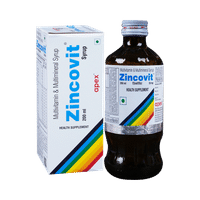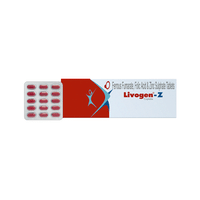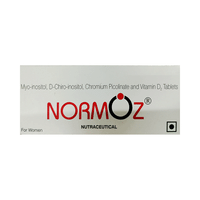Actogod-Plus Injection

Rs.75.60for 1 ampoule(s) (2 injections each)
Composition FOR Actogod-Plus
Methylcobalamin(2500mg),Folic Acid(0.7mg),Vitamin C(150mg),Niacinamide(12mg)food interaction for Actogod-Plus
alcohol interaction for Actogod-Plus
pregnancy interaction for Actogod-Plus
lactation interaction for Actogod-Plus
food
alcohol
pregnancy
lactation
No interaction found/established
Caution is advised when consuming alcohol with Actogod-Plus Injection. Please consult your doctor.
CAUTION
Information regarding the use of Actogod-Plus Injection during pregnancy is not available. Please consult your doctor.
CONSULT YOUR DOCTOR
Actogod-Plus Injection is safe to use during breastfeeding. Human studies suggest that the drug does not pass into the breastmilk in a significant amount and is not harmful to the baby.
SAFE IF PRESCRIBED
SALT INFORMATION FOR Actogod-Plus
Methylcobalamin(2500mg)
Uses
Methylcobalamin is used in vitamin B12 deficiency.
How it works
Methylcobalamin is a form of vitamin B12 that restores its level in the body thereby helping in treating certain anemias and nerve problems.
Common side effects
Decreased appetite, Diarrhea, Nausea, Rash
Folic Acid(0.7mg)
Uses
Folic Acid is used in the treatment of anemia due to folic acid deficiency.
How it works
Folic Acid is a form of vitamin B. It plays a vital role in the formation of red blood cells, which carry oxygen throughout the body. It is also essential in pregnancy due to its role in the development of the unborn baby's brain and spinal cord.
Common side effects
No common side effects seen
Vitamin C(150mg)
Uses
Vitamin C is used in the treatment of nutritional deficiencies.
How it works
Vitamin C is a vitamin that provides essential nutrients.
Common side effects
No common side effects seen
Niacinamide(12mg)
Uses
Niacinamide is used in the treatment of nutritional deficiencies.
How it works
Niacinamide provides essential nutrients.
Common side effects
Nausea, Portal vein fibrosis, Blockade of portal blood vessels, Dry hair, Headache, Heartburn, Hepatobiliary disorder, Liver toxicity, Sore throat, Stiffness of face, Disorientation (alteration of mental status), Fatigue
SUBSTITUTES FOR Actogod-Plus
1 Substitutes
1 Substitutes
Sorted By
 Rs. 49.90pay 28% more per ml of Injection
Rs. 49.90pay 28% more per ml of Injection
Expert advice FOR Actogod-Plus
- Methylcobalamin helps replenish vitamin B12 level in your body.
- This further helps in regeneration of damaged nerves in the body.
- Avoid or limit alcohol consumption while taking this medication.
- Inform your doctor if you are pregnant, planning to conceive or breastfeeding.
- Do not stop taking the medication even if your symptoms improve. Take it as per the dose and duration prescribed by your doctor.
Frequently asked questions FOR Actogod-Plus
Methylcobalamin
Q. What is Methylcobalamin?
Methylcobalamin contains vitamin B12. Vitamin B12 is an essential nutrient which is required by the body to make red blood cells and maintain a healthy nervous system. It is also important for releasing energy from food and using vitamin B11 (folic acid).
Q. Why can’t I get sufficient vitamin B12 from my diet?
You can get vitamin B12 from sources like meat, fish, eggs and dairy products. While people who are vegetarian or vegan may not get Vitamin B12 as it is not found naturally in foods such as fruits, vegetables and grains. Therefore, deficiency of Vitamin B12 is usually noticed in vegetarians or vegans.
Q. What happens if I have vitamin B12 deficiency?
Deficiency of vitamin B12 may cause tiredness, weakness, constipation, loss of appetite, weight loss and megaloblastic anemia (a condition when red blood cells become larger in size than normal). It may also lead to nerve problems such as numbness and tingling in the hands and feet. Other symptoms of vitamin B12 deficiency may include problems with balance, depression, confusion, dementia, poor memory and soreness of the mouth or tongue.
Folic Acid
Q. Is it ok to take Folic Acid when not pregnant?
Usually, folic acid requirements are met from the diet and therefore additional supplements are not required. In general, Folic Acid is recommended only when you have a deficiency of folic acid. However, Folic Acid is advised to women who are pregnant and who want to conceive. The medicine should be taken at least 4 weeks before pregnancy and should continue its use up to 3 months of pregnancy. Consult your doctor if not sure.
Q. Can Folic Acid cause weight gain?
Animal studies on Folic Acid suggest that taking the medicine in excess along with a high-fat diet may lead to weight gain and fat accumulation. But this weight gain was not evident when taken along with a normal or low-fat diet, even with excess Folic Acid. In humans, similar studies have not been conducted and therefore knowledge regarding weight gain is lacking. Therefore, if you are on Folic Acid eat a low-fat meal to be on the safer side.
Q. How long does Folic Acid take to work?
Folic Acid usually starts working within a few hours of taking it. If you are taking it for iron deficiency anemia, you may start feeling better after a few weeks of taking it. In case you are taking it during pregnancy, you may not notice any difference but this does not mean that the dose is not working. Continue taking Folic Acid for the duration recommended by your doctor.
Vitamin C
Q. What is Vitamin C?
Vitamin C consists of a water-soluble vitamin known as vitamin C. Vitamin C is also known as L-ascorbic acid or ascorbate. It cannot be stored for long in our body as it is water soluble. Therefore, it should be taken from food like tomatoes and citrus fruits like oranges to maintain sufficient levels of vitamin C in the body.
Q. Is Vitamin C necessary?
Vitamin C is used if your diet does not provide enough vitamin C. It can also be used to treat certain conditions caused due to low levels of vitamin C in the body. However, it would be best to consult your doctor before taking Vitamin C to get maximum benefit.
Q. Why is it important to take vitamin C in your diet?
Vitamin C has many beneficial properties. Vitamin C helps in the growth and repair of tissues of bones, cartilage, tendons, skin, hair, muscles and many more. Along with that, it helps in wound healing and also enhances absorption of iron in our body. Excess of free radicals can speed up the ageing process, vitamin C due to its rich antioxidant properties help to reduce the harmful effects of these free radicals. Vitamin C is very crucial for bone and teeth health. It improves vision and also regulates the blood cholesterol levels. Owing to its numerous benefits, it is very important to take an adequate amount of vitamin C in your diet.
Niacinamide
Q. What is Niacinamide? What is it used for?
Niacinamide is a medicine used in the treatment of conditions caused due to low levels of vitamin B3 in the body. It reduces the cholesterol levels to normal. It also helps in the treatment of symptoms like loss of appetite, weakness, diarrhea, skin inflammation and mental changes.
Q. Is Niacinamide effective?
Niacinamide is effective if used in the dose and duration advised by your doctor. Do not stop taking it even if you see improvement in your condition. If you stop using Niacinamide too early, the symptoms may return or worsen.
Q. How should Niacinamide be taken?
Niacinamide should be taken in the dose and duration advised by your doctor. It can be taken with or without food. However, it is advised to take it at the same time each day to avoid the chances of missing a dose.






















